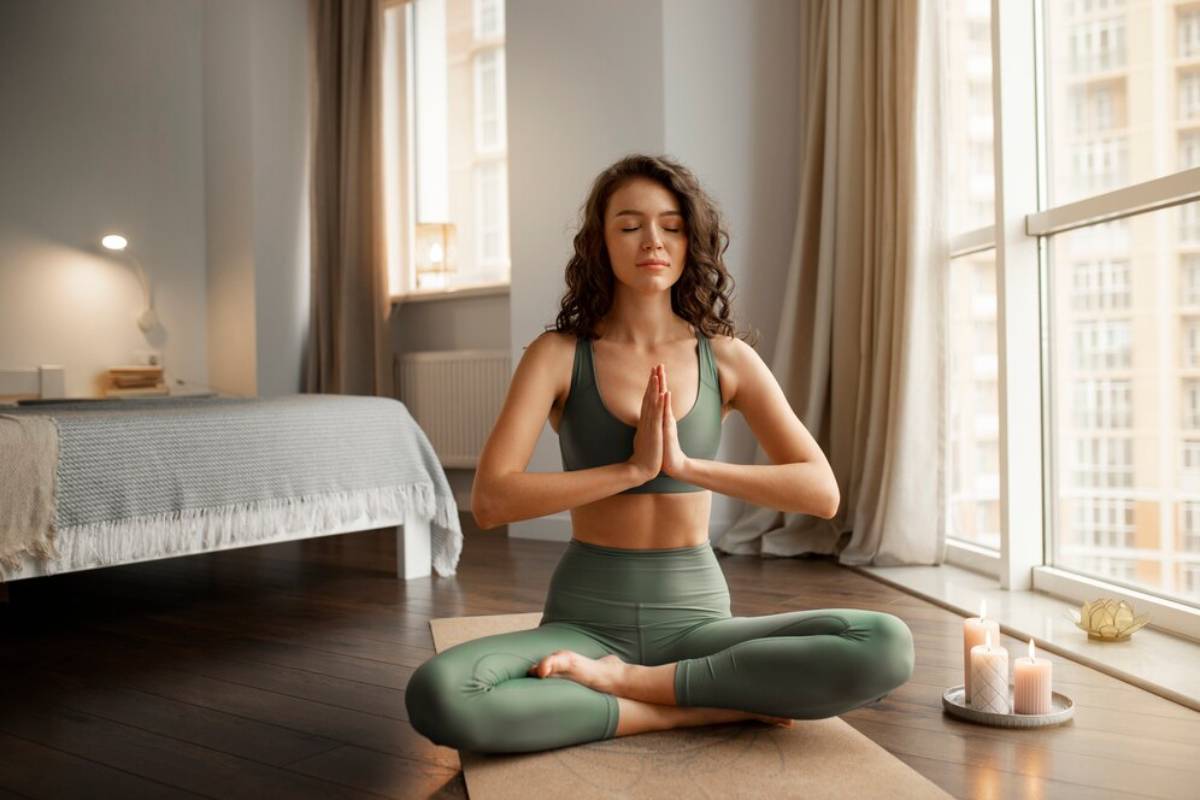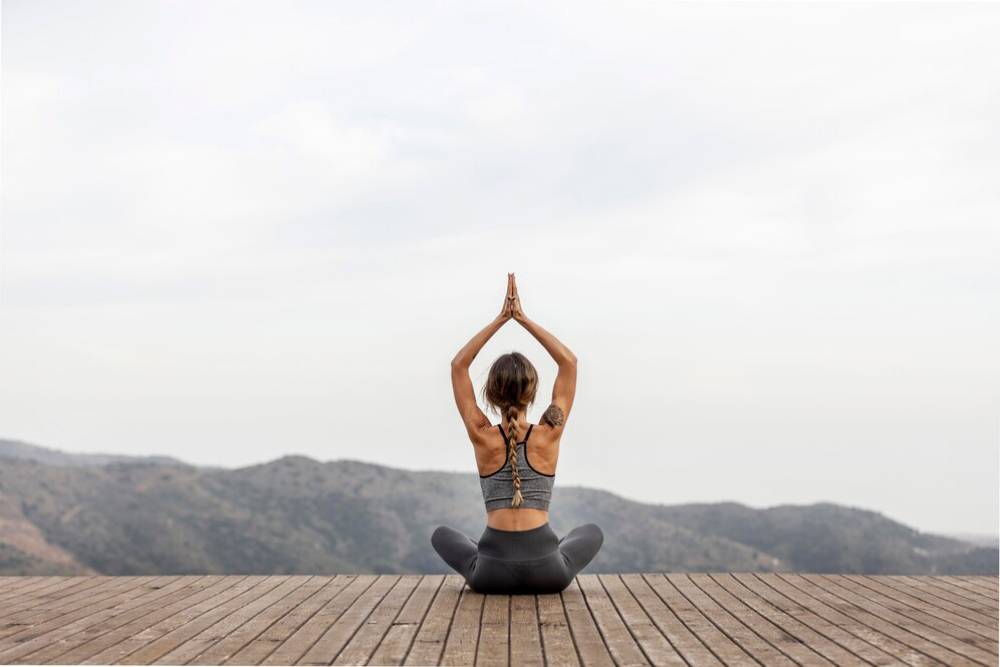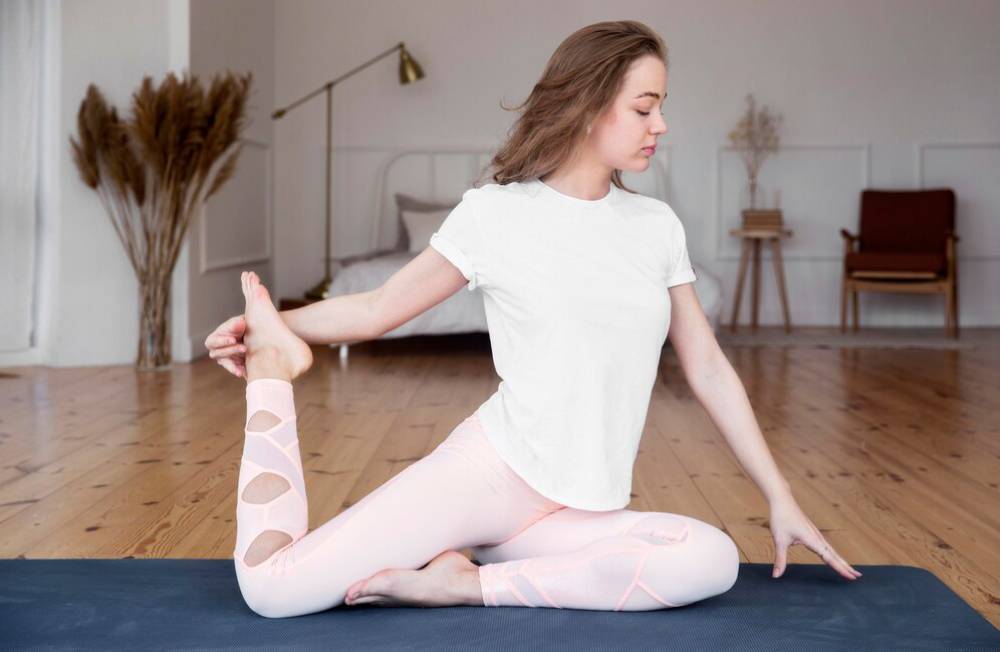
How to Use Yoga to Improve Mental and Physical Health
Yoga has roots that stretch back thousands of years to ancient India. Today, it is practised around the world, including the UK. It’s more than just exercise; it’s a complete health system that connects the mind, body, and spirit. So, why is yoga so popular? The answer is in its many benefits for mental and physical health.
Some people think yoga is only about flexibility. While that’s one benefit, yoga includes breathing techniques, meditation, and ethical principles that support a balanced lifestyle. This guide will cover yoga’s broad benefits, especially for stress relief, and share beginner-friendly poses to help you start.
Key Benefits of Yoga

Mental Health Benefits
Yoga is well-known for boosting mental clarity and calmness. One significant benefit is stress reduction. Stress is daily in our fast-paced world, and yoga offers a great way to cope. Research shows that yoga lowers cortisol, the stress hormone, encouraging relaxation.
Yoga also helps with anxiety and depression. By using mindfulness and meditation, it improves focus and curbs negative thoughts. This mental practice builds emotional strength, aiding stress management.
Pro Tip: Don’t rush your practice—take your time with each pose, focusing on your breath and alignment. Slow down to get the most out of each movement.
Physical Health Benefits
Regular yoga practice increases flexibility, strength, and balance. It also enhances cardiovascular health. Paired with controlled breathing, certain poses improve circulation and lower blood pressure.
While yoga may not burn as many calories as high-intensity workouts, it promotes weight management by encouraging mindful eating and a healthy lifestyle. It also aids digestion and detoxification, boosting overall wellness.
Pro Tip: Yoga is not just about flexibility. If you’re stiff, start where you are and allow your body to gradually open up. It’s about progress, not perfection.
Scientific Insights and Real-Life Applications
A Journal of Alternative and Complementary Medicine study found that regular yoga practitioners reported lower stress and anxiety levels. Another research published in the European Journal of Preventive Cardiology showed yoga’s positive effects on heart health, reducing the risk of cardiovascular diseases.
In the UK, yoga classes are now standard in gyms, wellness centres, and workplaces. Many companies have added yoga to their wellness programs, recognising its mental and physical health benefits.
Quick Guide to Start Yoga
Finding the Right Class
If you’re new to yoga, starting with the basics is essential. Many yoga studios in the UK offer beginner-friendly classes, and online platforms have resources to help you learn at your own pace.
Setting Realistic Goals
Yoga is a personal journey, and progress takes time. To enjoy its full benefits, set achievable goals, be patient, and focus on consistency.
Essential Equipment
Get a high-quality yoga mat and wear comfortable clothes to enhance your practice. These simple steps ensure safety and comfort during sessions.
Important Tip: Incorporate meditation at the start or end of your session to calm your mind and enhance your yoga practice. Mindfulness in yoga can lead to deeper relaxation and clarity.
Best Yoga Poses for Beginners

Mountain Pose (Tadasana)
This foundational pose improves posture and balance. Stand tall with your feet together and arms at your sides, focusing on grounding yourself.
Downward-Facing Dog (Adho Mukha Svanasana)
A staple in many classes, this pose stretches the whole body while strengthening the arms and legs. Start on all fours, tuck your toes, and lift your hips toward the ceiling.
Child’s Pose (Balasana)
This relaxing pose promotes stress relief. Kneel, sit back on your heels, stretch your arms forward, and rest your forehead on the mat.
Warrior I (Virabhadrasana I)
This powerful pose builds strength and endurance. Step one foot forward, bend the knee, and raise your arms overhead.
Cat-Cow Stretch (Marjaryasana-Bitilasana)
This gentle flow warms up the spine and relieves back tension. Alternate between arching your back (cow pose) and rounding it (cat pose).
Expert Findings and Common Mistakes to Avoid

Best Practices
- Focus on Your Breath: Controlled breathing enhances relaxation and focus.
- Listen to Your Body: Modify poses as needed and avoid pushing beyond your limits.
- Maintain Consistency: Practise yoga at least two to three times a week for the best results.
Common Mistakes
- Comparing Yourself to Others: Yoga is personal—focus on your progress.
- Skipping Warm-Ups: Always start with a gentle warm-up to prevent injuries.
- Overlooking the Mental Aspect: Yoga balances the mind and body, including meditation and mindfulness.
Advanced Insights for Experienced Practitioners
Try advanced styles like Ashtanga or Vinyasa to deepen your practice for more challenging sequences. Incorporating yoga philosophy into daily life—such as mindfulness and non-attachment—can also boost well-being beyond physical exercise and training.
Secret Tip: Practice yoga outdoors when possible. The fresh air and connection with nature can deepen your sense of relaxation and calm, enhancing the benefits of your practice.
Frequently Asked Questions (FAQs)
- What is the best type of yoga for beginners?
Hatha yoga is ideal for beginners as it focuses on gentle postures and breathing.
- How often should I practice yoga?
For noticeable benefits, aim for at least two to three sessions per week. Daily practice, even for a few minutes, can also be beneficial.
- Can yoga help with back pain?
Yes, poses like Child’s Pose and Cat-Cow Stretch can relieve tension and strengthen back muscles.
- Is yoga a good workout for weight loss?
While yoga may not be the fastest way to lose weight, it promotes mindful eating and a healthier lifestyle, which can help with weight management.
- Do I need to be flexible to start yoga?
No, yoga improves flexibility over time. Beginners should start at their own pace and gradually progress.
- What should I wear for yoga practice?
Wear comfortable, breathable clothing that allows easy movement. Avoid overly loose clothes that may interfere with poses.
- How long should a yoga session be?
A typical session lasts 30-60 minutes, but even 10-15 minutes can be beneficial.
- Can yoga help reduce stress?
Absolutely. Yoga promotes relaxation, lowers cortisol levels, and enhances mindfulness, making it an excellent stress reliever.
Embrace Yoga for a Healthier Life
Yoga is an ancient practice with many mental and physical health benefits. Whether you seek stress relief, fitness, or self-awareness, yoga offers tools for transformation.
Remember, yoga is a journey of progress, not perfection. Approach it with curiosity and commitment, and you’ll soon feel its life-changing effects.
Are you ready to experience yoga’s benefits? Try a class today—whether in a studio or online, many resources are available to help you get started.
Embrace yoga and discover its transformative benefits today!